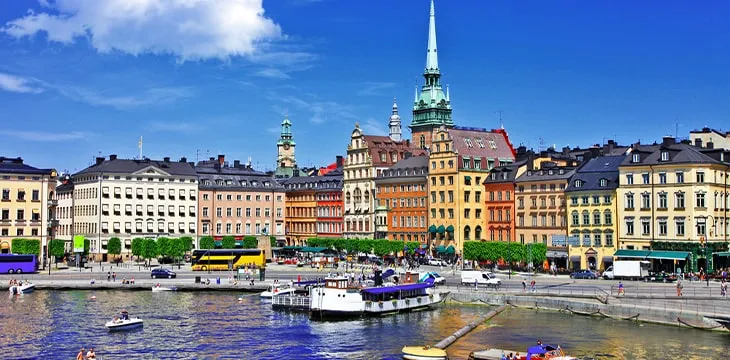|
Getting your Trinity Audio player ready...
|
As Sweden’s profile as a friendly digital currency block reward mining destination grows, the country’s Energy Ministry is rethinking its stance towards the industry. It now says that the country would be best served by directing its energy to job-creating activities such as steel mining rather than block reward mining as power becomes scarcer in the Scandinavian nation.
Sweden is experiencing economic growth, and with it, the country’s demand for energy is growing, Energy Minister Khashayar Farmanbar told Bloomberg in an interview. As such, it’s becoming critical for the country to rethink its energy policies to ensure that the most beneficial sectors to the economy are prioritized, and BTC mining isn’t among them.
“We need energy for more useful things than Bitcoin, to be honest. We are moving from a period of administration to an extreme expansion where our entire manufacturing industry is seeking to electrify,” Farmanbar stated.
Currently, Sweden isn’t a big player in the mining industry, and according to Cambridge University’s Centre for Alternative Finance, it only accounts for 0.8% of the global BTC hash rate. However, this share has grown from zero in the past two years and is projected to continue growing as miners explore friendly jurisdictions. Sweden’s grid operator estimates that demand for energy from miners will grow eightfold by 2040.
Sweden’s biggest appeal is its relatively low energy costs. The country has giant wind parks and vast hydro reservoirs, making it one of Europe’s best destinations for energy-intensive industries.
Even more alluring is the preferential tax treatment that the country accords to data centers, regardless of their use. This treatment was meant to attract global tech giants such as Google, Microsoft, and Amazon and not the miners, Erik Thornstrom said in an interview.
“I think the existing tax reliefs should be focused on the activities they were meant to attract in the first place. Mining of cryptocurrencies is more questionable,” Erik, a senior advisor at industry group Swedenergy stated.
Erik isn’t the only one questioning the use of Sweden’s energy in block reward mining. The country’s financial regulator has previously called digital assets a threat to climate transition and even called for a regional ban on mining. This push gained traction and support from fellow regulators in Germany, Norway, and Spain but faltered when it was put to the vote at the European parliament’s economic and monetary affairs committee.
The energy minister insists that the country can’t serve all industries equally and that a tough decision will have to be made at some point.
“There will be bottlenecks, and that means you have to look into whether we are using energy in the best possible way. Is Bitcoin mining what we should be using power for, when we can use it for making fossil-free steel, for example? It is not entirely trivial in a free market,” he told Bloomberg.
Competing industries support the proposed ban, or at least a cutback, on block reward mining. One of these is SSAB, a Nordic and U.S.-based steel company with operations in Sweden. Tomas Hirsch, the head of energy at SSAB, believes that regulators should prioritize companies like his that provide employment rather than serving companies on a first-come, first-served basis.
“You could take into account what projects provide the biggest benefits to the climate and society. We could reduce Sweden’s carbon dioxide emissions by 10%,” he said.
While the Swedish energy ministry has made it clear that it favors limiting block reward miners in favor of other industries, it has not proposed how it plans to cut back on their energy consumption. Industry experts say there are two alternatives. First is giving preference to the other industries by changing how users gain access to the grid.
Second, which is likelier, is limiting the preferential tax treatment that data centers in Sweden have been getting. These incentives would still be available to the centers that process data for companies operating in sectors the government believes provide a greater good for the country.
For Sukesh Kumar Tedla, chair of the Swedish Blockchain Association, this would be unfair to digital asset companies.
“Yes, cryptocurrency mining consumes a lot of energy today but so does a lot of other innovative technologies that help run our society,” Tedla commented.
Watch: The BSV Global Blockchain Convention panel, Blockchain mining & energy innovation
https://www.youtube.com/watch?v=z07TPyXw2OE

 07-04-2025
07-04-2025 





